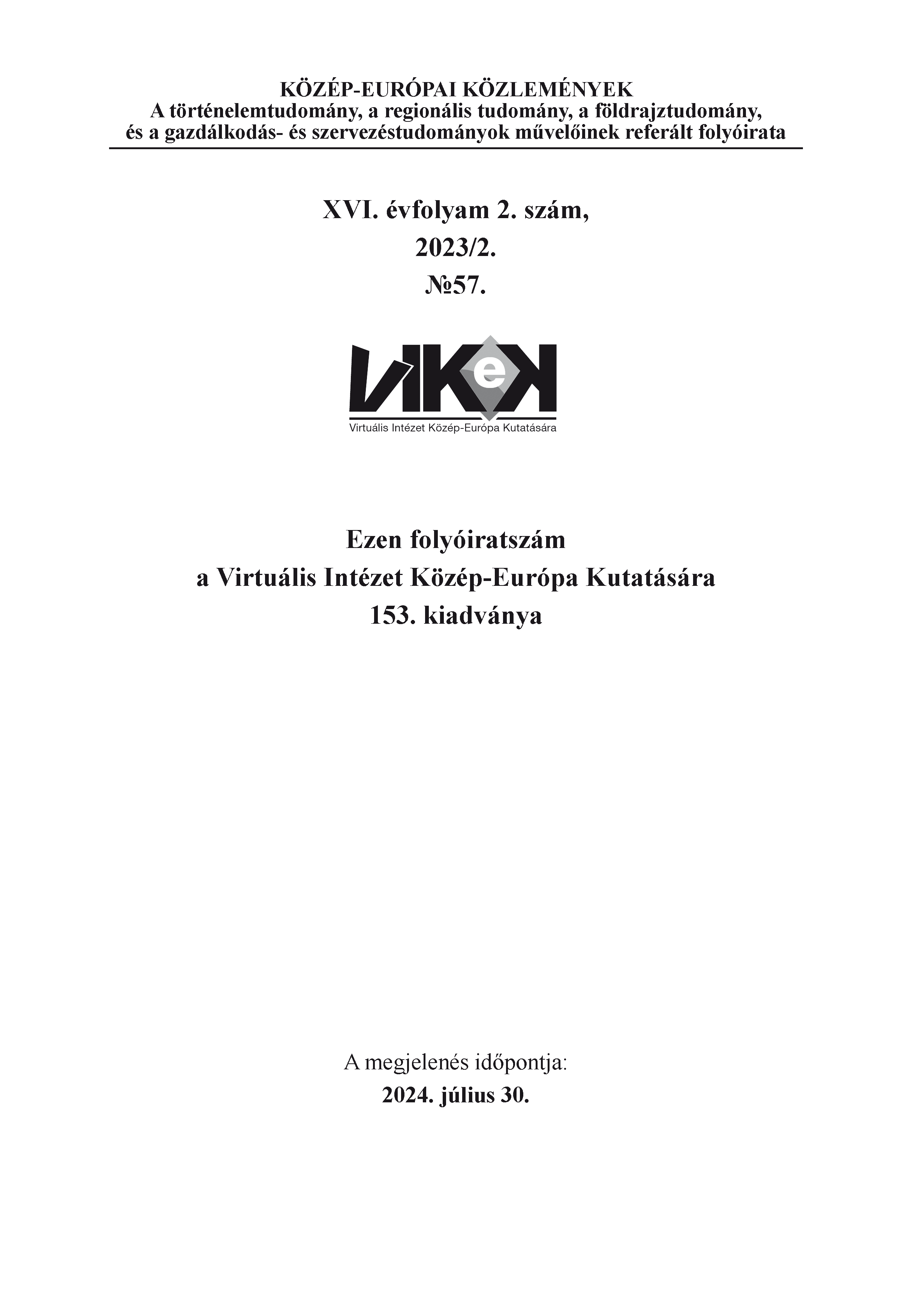The transformation of state systems and national relations in central europe after the first world war
Main Article Content
Abstract
The world war has profoundly transformed the Central European region, which is populated by small peoples and ethnic group. Although initially the Entente powers did not envisage a radical reorganisation of the region, it was still conceived of as a sphere of influence of Russia, Germany and the Habsburg monarchy. Yet, in the wake of the revolutionary and national independence movements of 1918-1919, this idea was abandoned. The collapse of the old state orders and the emergence of the new ones took place in an instant. The viktorius Entente powers became allies of the new states in the region, such as Poland, Yugoslavia, Romania, and Czehoslovakia. On the one hand, these countries were seen as a pledge for the consolidation of the region and, on the other, they had to form a protective barrier against Soviet Russia.
